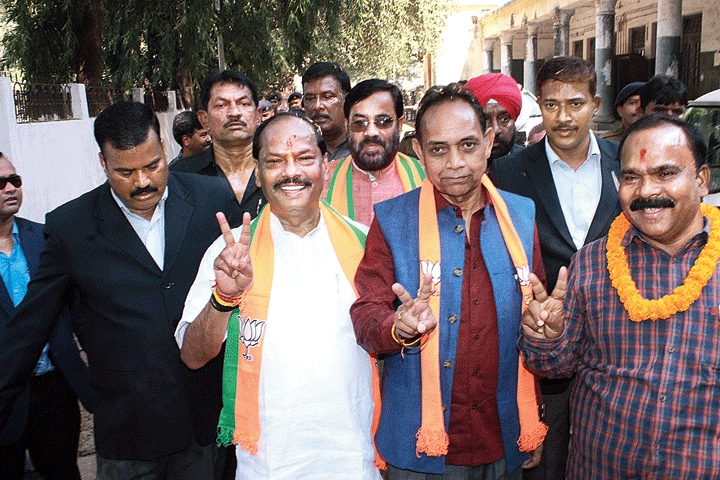Jharkhand’s voters are not talking about a Ram temple in Ayodhya, the “liberation of Kashmir from Article 370”, or the abolition of the instant triple talaq.
Nor do they seem terribly keen on “cleansing” the country through the National Register of Citizens, another plank that Narendra Modi and Amit Shah are trying to sell them this Assembly poll.
Instead, voters are evaluating the performance of the state’s BJP government over the past five years, its flip-flop over two land acts in tribal areas and its failure to increase the Other Backward Classes quota.
They are also worried about bread-and-butter issues such as the joblessness and farm distress.
“Modi is a great leader. We backed him in the national elections (when the NDA won 12 of the state’s 14 Lok Sabha seats). But this election is for Jharkhand, so it’s about local issues,” said Laxman Mahto, a pakora seller in Bundu on the Ranchi-Jamshedpur highway.
Several people cited the state of the highway, still under construction, as a reflection of the Raghubar Das government’s failures.
This distinction that the voters are drawing between national and state elections had hobbled the BJP in the recent state polls in Maharashtra and Haryana while helping it in Madhya Pradesh, Rajasthan and Chhattisgarh in the general election.
“Kashmir and the Ram temple are big things Modi has achieved, but to visit Kashmir or Ayodhya you need money,” vegetable grower Chandra Kishore said in an allusion to the flagging farm incomes in his village of Baburamdih, part of Tamar Assembly segment.
Villagers like him want their children to look for alternative employment, particularly government jobs. Keeping this in mind, the Opposition has been questioning the state government’s failure to raise the OBC quota while providing 10 per cent reservation to the upper-caste poor. The campaign seems to have impressed some of the OBCs.
“The government is giving us cheap rice. We don’t want rice; we want jobs for our children,” said Sikandar Mahto.
He said the OBCs had backed the BJP heavily in the 2014 polls but the party had still not raised their job quota while favouring the upper-caste poor. “How will our children get jobs?” he asked.
However, the BJP’s biggest problem is its passage, followed by withdrawal, of amendments to the land tenancy acts relating to the tribal belts of Chotanagpur and Santhal Parganas. The flip-flop has left both the tribal communities and the BJP’s OBC vote bank enraged, for opposite reasons.
The state had in 2016 amended the century-old Chotanagpur Tenancy Act and Santhal Parganas Tenancy Act to allow transfer of land owned by indigenous people including the Scheduled Tribes, Scheduled Castes and the OBCs.
A backlash from tribal parties and organisations that accused the BJP of trying to usurp tribal land prompted the government to withdraw the proposed laws in 2017 before they had been notified.
Now the tribal groups are suspicious of the BJP, while the OBCs are angry at the withdrawal of the proposed amendments.
“This CNT has destroyed everything. We OBCs can’t sell our land but an upper caste can. What does this mean?” asked Jugal Mahto in Tamar.
Under the original act, OBCs can sell their land but only within their caste, to a buyer from within a specified geographical boundary, and with the district collector’s approval.
Trying to divert attention from these issues, BJP campaigners including Modi and Shah are aggressively pitching the polarising issues of the “56-inch chest decision” on Kashmir, Ayodhya verdict and the instant-talaq ban.
Shah has been promising to drive out “infiltrators” by implementing the NRC across the country.
The BJP’s best hope, however, seems to be a pervading fear of another “khichdi sarkar” (coalition government) in a state ruled for the first 14 years of its existence by ragtag alliances.
Sensing this sentiment, Modi had reminded the Jamshedpur rally how Jharkhand had witnessed 10 chief ministers between 2000 and 2014 and stressed that development cannot come without stability.
A trader in Jamshedpur summed up: “The mood is against the BJP, and particularly chief minister Das, but we are worried that a khichdi sarkar could be worse for the state.”

